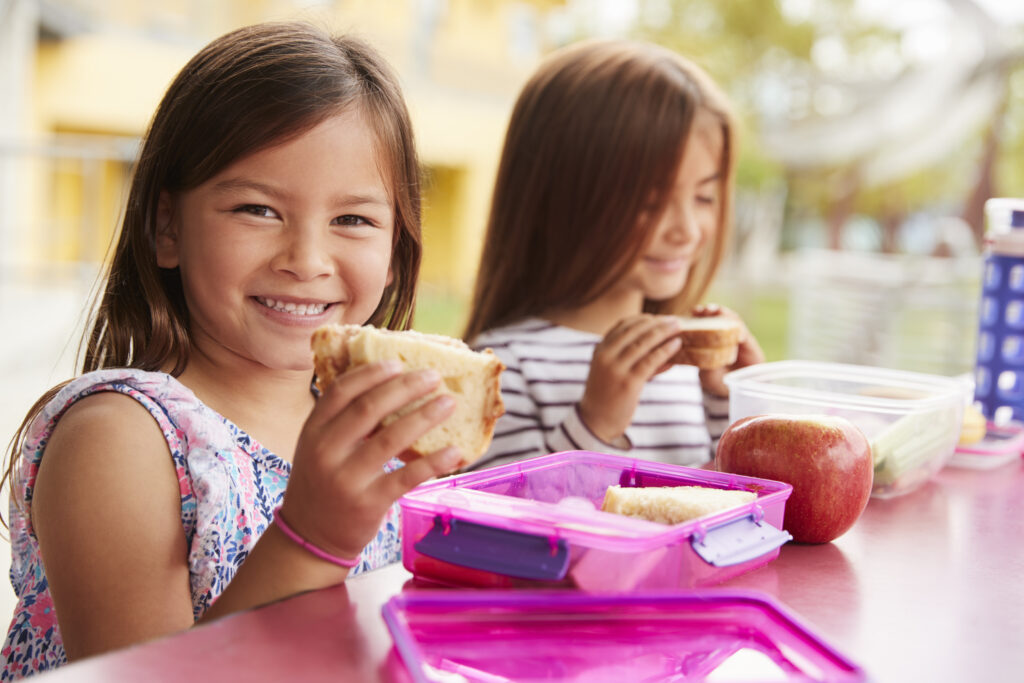Imagine students totally engaged in hands on math activities where they calculate the number of seeds on a kale plant that they watched grow, flower and go to seed. Over the period of a few afternoons, without even realizing it, students were learning big ideas of how data can be collected, organized and displayed in order to address questions that emerged from time in the school garden. Their class regularly went to the garden to harvest kale for the weekly salad bar. The salad bar incorporates local produce from a number of local farmers and is supported by parents and students from a culinary arts program at a nearby secondary school. The creation of a school garden and weekly salad bar program was supported by the whole school community as part of a whole school food policy. This policy was developed by students, teachers, administrators and staff, and parents to go beyond the requirements outlined in the Guidelines for Food and Beverage Sales in BC Schools to try to create a culture of food literate students.
Food literacy is knowledge, attitudes and skills about food. This includes understanding the connections between food, health and wellbeing; knowing how to select nutritious foods; and understanding what constitutes a healthy diet. Food literacy is about healthy eating, but food is also connected to competencies and concepts in the Physical and Health Education curriculum as well as other curriculum areas.

How is Food Literacy Connected to Comprehensive School Health?
A comprehensive school health approach (often called a whole school approach) to food literacy is about ensuring students have many opportunities – in the classroom, and in every aspect of their school experience – to develop food literacy. Students’ learning is enhanced when learning experiences extend beyond the classroom throughout the school and into the community. A comprehensive school health approach coordinates actions across all areas of the school in a planned, integrated and holistic way. Incorporating the pillars of comprehensive school health supports the development of food literate students in healthy school communities.
Supports
Check out the variety of resources and supports that collectively support healthy eating and food literacy.